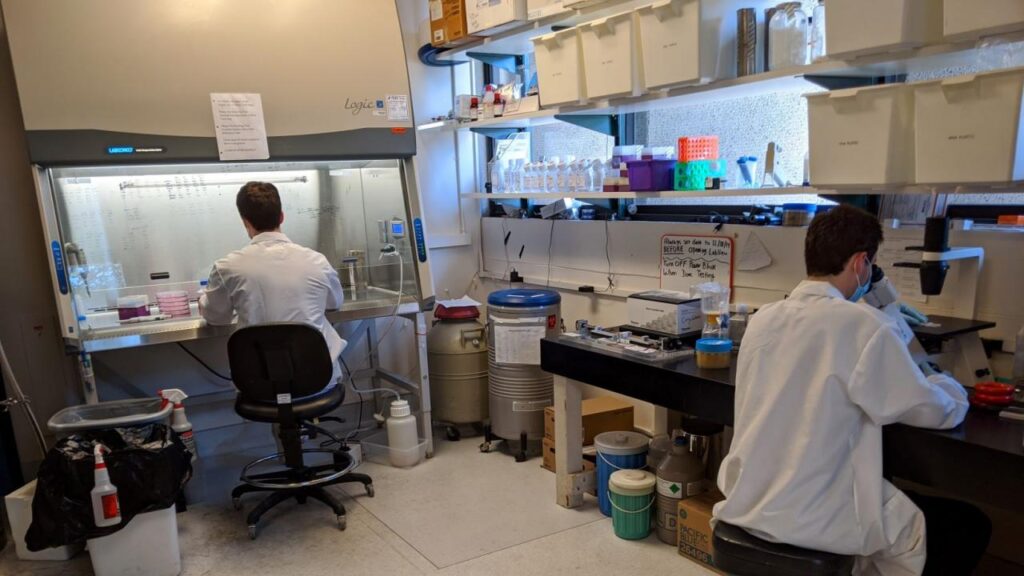California Sets Up Special Committee to Drive Alternative Protein Innovation
4 Mins Read
Home to a host of leading future food startups, California has established a special committee to advance innovation in the alternative protein sector.
While several states in the US are banning (or hoping to ban) cultivated meat from being sold within their borders, some are doubling down on their commitment to supercharge the future food industry.
Among those is California, which last month established the Assembly Select Committee on Alternative Protein Innovation to boost the state’s position as a leader in sustainable food systems.
The special committee is being chaired by Ash Kalra, a Democrat from San José, who was instrumental in California’s $5M investment in alternative protein research in 2022.
Why California is betting on alternative proteins

In the US, select committees are established by the Senate for a limited time, and tend to be investigative rather than legislative in nature. These committees may or may not be given the authority to report legislation to the chamber.
California’s alternative protein committee will focus on efforts to support all pillars of the alternative protein sector, including plant-based proteins, fermentation-derived foods, and cultivated meat.
It will begin by organising information hearings to determine how California can expand its alternative protein economy while aligning with its climate and sustainability goals. “This committee is about more than just boosting a promising sector of our economy,” Kalra said. “It’s about investing in climate-smart food solutions that meet the needs of a growing population.”
In 2022, the state unveiled what it claimed was the world’s first detailed climate neutrality pathway, aiming to slash greenhouse gas emissions by 48% in 2030 and 85% by the target year of 2045. It also promises to save $200B in healthcare costs related to pollution.
In addition, California is working to redirect 20% of food from being sent to landfills by this year, and reduce methane emissions by 40% (below 2013 levels) by the end of this decade. Targeting meat and dairy production is a key tenet of this latter target, considering that livestock is responsible for half of the state’s methane footprint.
In fact, animal agriculture is responsible for 70% of California’s total emissions from the food system, and takes up a third of its land area. Expanding its alternative protein ecosystem is therefore a critical step towards decarbonisation.
Producing foods from plant-based ingredients, microbes or cellular agriculture uses a tiny share of the land and water that animal proteins do, while emitting a fraction of the greenhouse gases as well.
The Golden State is already a leader in alternative protein

“Our state is a leader in alternative protein innovation and home to the first major plant-based protein companies, the first-ever cultivated meat startups, and numerous inventive fermentation food companies,” said Kalra.
Indeed, California is the birthplace of modern-day plant-based giants Beyond Meat and Impossible Foods, and a host of leading cultivated meat startups. In fact, all four companies approved to sell cultivated proteins in the US – Eat Just, Upside Foods, Mission Barns, and Wildtype – hail from the Golden State.
The state is also home to the Integrative Center for Alternative Meat and Protein. Opened last year at the University of California, Davis, it is conducting research on speeding up these future foods’ path to market.
Three years ago, California made the single-largest alternative protein R&D investment of any state, with Governor Gavin Newsom signing a budget bill that provided $5M to UC Berkeley, UC Davis, and UCLA. As mentioned above, this effort was facilitated by Kalra.

“I look forward to holding informational hearings on the topic of growing this new economy and how it can support California’s climate and food sustainability goals,” the senator said.
Other states that have championed alternative proteins in recent years include Illinois, which poured in $680M in the iFAB Tech Hub to advance precision fermentation research and its biomanufacturing capabilities. Massachusetts, meanwhile, is home to Tufts University and its Center for Cellular Agriculture, and passed an economic development bill that pledged investment in the sector.
The state has pledged $10M for local companies and to match grants supporting these proteins, and another $115M for an infrastructure programme to support job growth in key tech sectors, including plant-based, fermented and cultivated foods with “sensory characteristics that are consistent with conventional meat and dairy”.
“I think it’s incumbent on us lawmakers to think long-term,” Senator Barry Finegold, chairperson of Massachusetts’s economic development and emerging tech committee, told Green Queen last year. “If we’re concerned about climate change, if we’re concerned about people’s health, then I think we have to take science seriously.”



